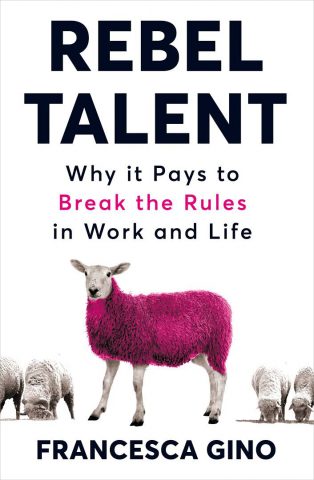You’ve got to show your rebel side too!
Rebels, for so long a source of fear, now come highly rated. They’re committed, innovative, and inclusive, and are at the cutting edge of change. A healthy dose of positive rebellion can be good both for your team and your organization.

Rebel Talent
by Francesca Gino (Dey Street, 2018)
Rebels are, by definition, people who find it difficult to follow instructions. This type of behavior is not the same as nihilism or mass destruction. On the contrary, it carries the promise of doing things differently, which is worth considering at a time when cast-iron rules and procedures carved in stone have become obsolete. Rebellion goes hand-in-hand with innovation, foresight, inclusion, and commitment, and it can be an effective way of tackling many of the problems facing us today. The future, according to Francesca Gino, may well belong to constructive rebels.
Why dissent is a profitable approach
The idea of rebellion provokes ambivalent reactions. Some rebels are admired and praised to the skies for their daring and creativity — think of Steve Jobs, for example. But their subversive potential can be unnerving: rebels are seen as lawless pirates, pariahs in the making, who are often rejected, and rightly so, when they use their talents to back a bad cause. Such was the case of Bernard Madoff, the genius, self-taught creator of one of the most inventive scams in the history of investment companies. But it is possible to break rules honestly and constructively, argues Gino, and you’re even advised to do just that to enhance your reputation. The author notes that the main obstacle to positive dissent in an organization is the fear that it will hinder career advancement. But that’s wrong: “non-aligned” behavior can boost your assertiveness, credibility, and leadership skills. A study conducted by Gino among several hundred employees in US companies[1] showed that attitudes deemed “rebellious” (i.e., expressing open disagreement, not conforming to management expectations, ignoring dress codes, etc.) make you more confident, increase recognition of your skills, and are even seen as signs of status and power. The consequence — and the icing on the cake — is that colleagues more readily follow a rebel leader.
© Copyright Business Digest - All rights reserved




